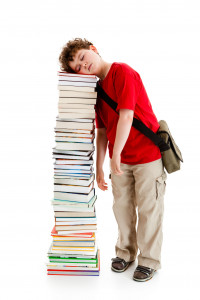 Sleep is a restorative process that helps us function physically and emotionally and has a direct effect on our behaviors and in our ability to sustain attention. Sleep gives your body a rest, like a mini-vacation, and helps it prepare for the next day. Sleep is essential to our well-being. Reduced sleep can have a negative effect on our overall functioning throughout the day.
Sleep is a restorative process that helps us function physically and emotionally and has a direct effect on our behaviors and in our ability to sustain attention. Sleep gives your body a rest, like a mini-vacation, and helps it prepare for the next day. Sleep is essential to our well-being. Reduced sleep can have a negative effect on our overall functioning throughout the day.
Sleep hygiene involves a number of different steps necessary to have a normal, quality night sleep and subsequently leading to daytime alertness.
Why is a good night’s sleep important for children?
- contributes to both physical and mental health
- helps kids feel good, and do well in school
- plays a role in mood and behavior
- can reduce aggression, hyperactivity, depression and anxiety, and increase attention
How can poor sleep habits affect children in school?
- Decreases ability to stay focused
- Can become easily distracted
- Exhibit hyperactivity
- Can be impulsive
- Show irritability and fussiness
- Increased sleepiness in the classroom
What are the basics of sleep hygiene?
- Routines
- Establish a bed time – based on the child’s age
- Toddlers: 12-14 hours of sleep
- Preschoolers: 11-12 hours of sleep
- School-age children: 10-11 hours of sleep
- Teens: 8-9 hours of sleep
- Limit screen time or high stimulation activities before bed
- Calming bedtime routine
- Engage in activities that promote relaxation such as taking a bath and reading a book
- Child should wake up at the same time everyday
- Bedtime should follow a predictable sequence of events
- Establish a bed time – based on the child’s age
- Security objects such as a doll or a blanket are often helpful for children to feel safe and secure
- Engaging in physical exercise during the day can often help with sleep at night
- Bedroom should be cool and comfortable
- Bedroom should be dark and not too distracting
- Limit bright lights, clocks, and phones
- The bed should be used only for sleeping
- Teenagers often use their beds for homework and TV – this can decrease their ability to go to sleep at night.
- Beds should be associated with sleep
- Consistency is key!
- Stick to your routine
- Predictability is important
What to avoid?
- Drinking many liquids before bedtime
- Caffeine such as sodas, chocolate, tea
- Doing stimulating activities before bedtime
- Using the bed for activities other than sleep
- Putting the child to bed after falling asleep somewhere else
- Staying up past their bedtime
What happens if children come into their parents’ room in the middle of the night?
- Limit attention
- Get them back to their bed as soon as possible
- Minimize conversations
- Do not let them come into the bed
- Walk them back to their room
If the child continues to need comfort to fall asleep, parents can sit in a chair next to their bed until they fall asleep. It is important that children learn to sleep in their bed, and to fall asleep on their own.
When to seek help?
If your child continues to have serious trouble falling asleep and consistent sleep routines are not working, consulting with a pediatrician or a mental health professional can be beneficial to assist in determining the cause and learning techniques to help children relax before bed in order to fall asleep more easily.





